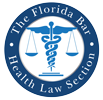Guiding Principles of Mentor/Protégé Program:
The Mentor’s role is to assist the Protégé to develop into a successful, satisfied and well-connected health care attorney through introduction to the field of health care law, a specific subspecialty, a particular practice setting, or other mutually agreed upon goals, as well as utilization of FBHLS’s resources and opportunities.
The FBHLS Mentoring Program is intended solely to complement or supplement similar activities available within the Protégé’s practice setting. It is not intended to usurp or interfere with mentoring programs already available to the Protégé..
The Mentor is not intended to serve as a tutor on substantive law issues, but as a conduit to existing FBHLS and other resources on substantive law issues of interest to the Protégé.
The Mentor and Protégé should avoid discussing particular legal cases that either of them are handling, in order to avoid problems with conflicts of interest and confidentiality.
The Mentor and Protégé will maintain the confidentiality of their discussions unless both agree otherwise.
